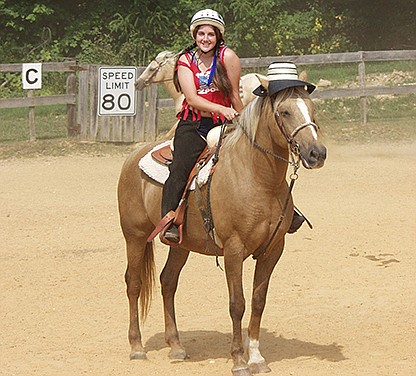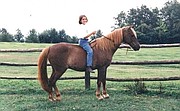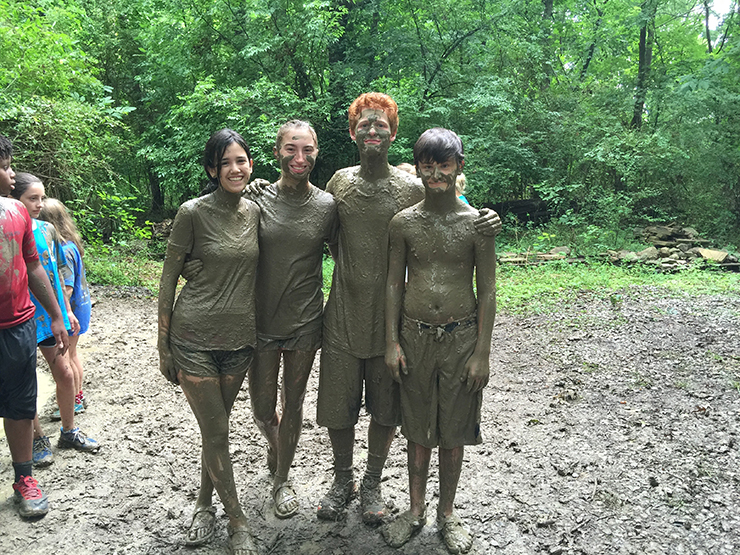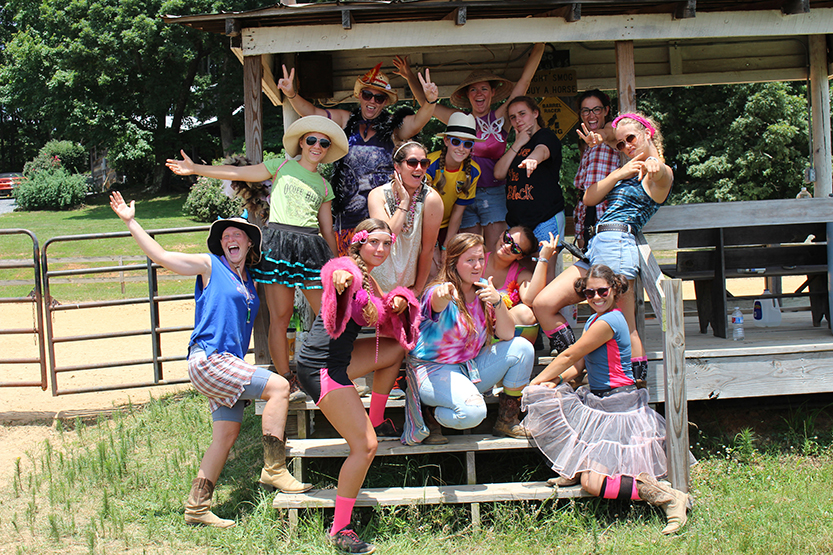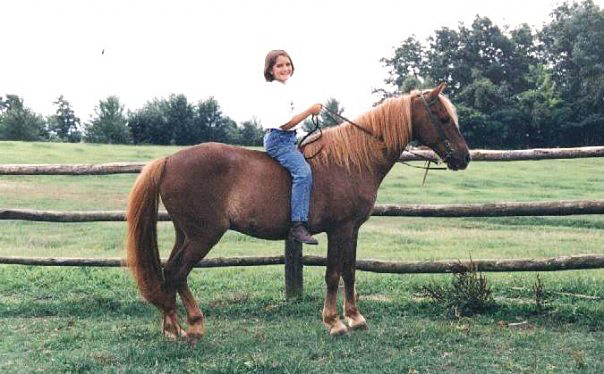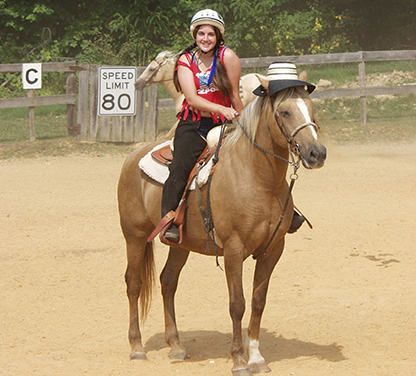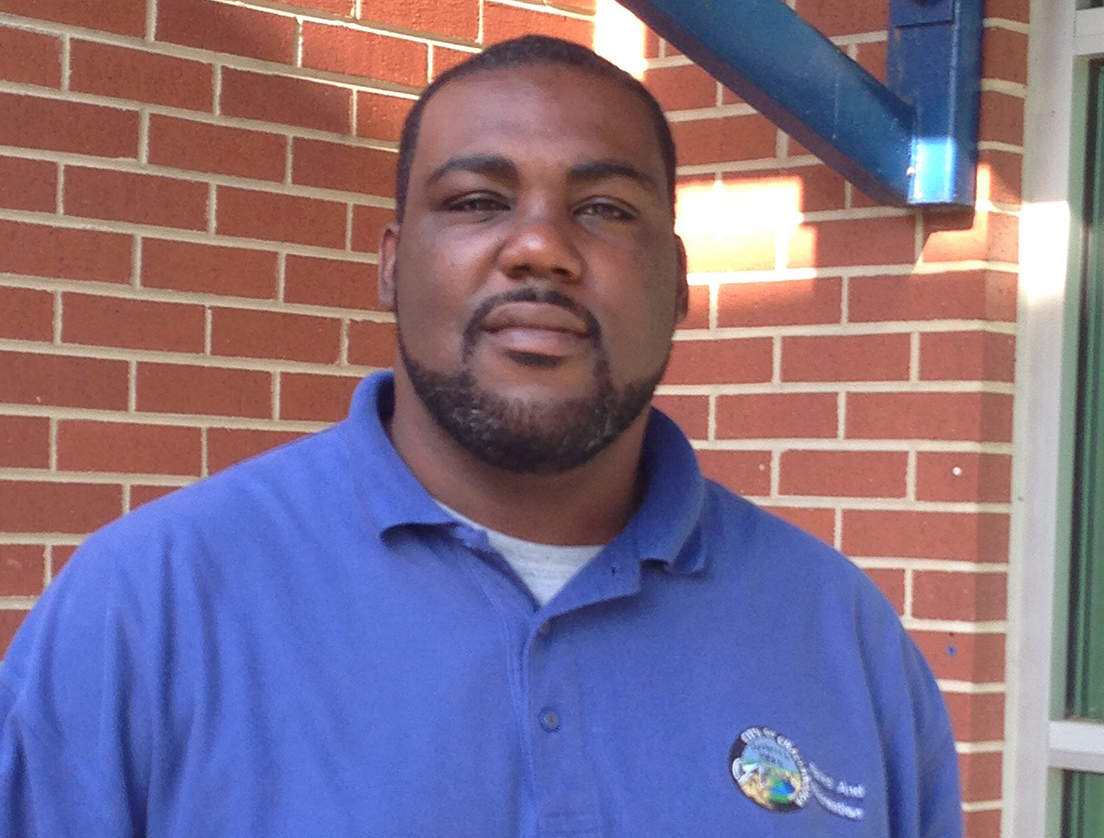Photo Gallery
Season of change: Teaching Chattanooga's summer campers helped counselers find themselves
Every summer, from age 11 to 18, I attended Boy Scout camp. It wasn't always easy - in fact, it was often challenging, but those experiences made me a better person. For instance, I remember learning survival techniques from Old Joe Grow, who was well into his 80s when he taught me at Skymont Scout Camp in Altamont, Tennessee. I was the youngest in the Pioneering merit badge class, and I can still hear his harsh barks when I incorrectly lashed tree branches together. Still, his grizzled voice ensured I never forgot those knots. He had been a counselor at that camp for nearly 40 years when he passed in 2009. He was a hardass and an outdoorsman. However, I'm sure that when he was a boy, even wrinkled Old Joe Grow was a bright-eyed, eager camper, ready to learn.
While I never went on to become a counselor, I understand the formidable role they can play in a camper's life. Young kids look up to counselors like they're librarians in ancient Alexandria, full of knowledge. This month, I spoke with three campers-turned-counselors who rose to that responsibility and discovered lifelong passions and careers. They come from different backgrounds and have vastly different camp experiences - from surviving swarms of angry yellow jackets to surviving crime-ridden neighborhoods.
But they all have one big thing in common: Summer camp made them a better person.
THE BIOLOGY OF A CAREER
Nature camp turns camper/counselor on to career path in biology
Lea Mulligan had just become a counselor-in-training at Reflection Riding Arboretum and Nature Center, when she found herself anxiously cradling a corn snake. In front of her were over a dozen eager campers, ages 8 to 12, gawking excitedly at the reptile - which was also anxious - slithering through her hands.
"I had only lightly pet a snake with two fingers before as a camper," Mulligan says. "I'd never actually held one."
Despite her nervousness, the 14-year-old Mulligan knew what to do. This was her sixth year attending the camp, although it was her first as a counselor. She started rattling off facts about the snake. For example, she told her wide-eyed audience how the corn snake hunts rats; how it is not venomous; and, most importantly, how corn snakes are rather docile and not prone to biting.
The young campers drank in the wisdom. Then, suddenly, a separate group of children walked by the reptile area, and their passing was rather loud. Mulligan knew snakes tend to be sensitive to sound. Despite lacking outer ears, snakes are adept at sensing vibrations - and rowdy 10-year-olds definitely create enough vibrations to irritate a snake. Mulligan's nervousness amplified.
"The snake kept moving, and I had to keep my arms going to ensure it stayed in place," she says. "I had to pretend to be super-calm in front of the kids while ensuring the snake didn't escape onto the floor."
But the real star of the show was the snake, which, thankfully, kept the campers from noticing Mulligan's nerves. Despite more than a few new people reaching out to give the snake a two-finger stroke, the animal did not bite. Instead, it just kept slithering forward, presumably frustrated it wasn't making any progress.
Her demonstration soon finished, and Mulligan herded the children off to another animal presentation at the camp. The memory stuck with her, though.
"I got to watch the counselors do this for years, and now I got to do it," says Mulligan. The burden of instilling knowledge was new to her. She was now the one responsible for educating an eager audience. When she realized this, she says, she couldn't stop smiling. And best of all, she had survived her first handling of a corn snake.
Question & Answer
Q: What initially made you want to attend a nature camp?
A: I really enjoyed doing stuff in the outdoors growing up. My [parents] had a connection with the nature center and they recommended I go for a week when I was 8. I fell in love with it after that first summer.
Q: What would you say is one of your favorite things to do as a counselor after being a camper for so many years?
A: Getting to [teach] all the information I learned as a camper is great. It's interesting to see which kids are fascinated and which kids are more interested in playing a game. It's exciting to be asked questions, too.
Q: Do you find yourself doing things you loved your own counselors doing when you're teaching?
A: When I think back to being a camper, I remember which things interested me and which didn't, so I can filter out what may be a bit less interesting. When I was younger, I was always excited to go behind the scenes, so I like building that up for our campers. Last year we had a baby red fox that wasn't ready for an exhibit yet, but as campers, they got to see it and learn about it before anyone else. As a counselor, I can do that for them now.
Q: Was the learning curve as a counselor-in-training a steep one?
A: One of my original counselors, Susan, helped me. I consider her a friend and mentor. She helped me figure out how best to talk to the campers and how to give them directions, tricks to get them to be quiet, that sort of thing.
Q: What sort of tricks?
A: We always do "quiet coyote," where we form the symbol of a coyote with our hands and make the campers repeat "quiet coyote." It's cute and usually works.
Q: I imagine it was a big step to move from camper to counselor.
A: Originally, the first time I was completely alone with campers was pretty stressful. It was the first day of camp a few summers ago, and we were just playing silly camp games in the backyard. Susan had stepped out, and it was relieving when she came back, but she gave me that opportunity. It was small, but I learned I could be in charge of this group of kids.
Q: What are some of the hard days?
A: Days that it's raining, for sure. We're a nature camp; most of our activities take place outside. The animal caretakers and people working at the front desk always come through with giving us an animal to talk about inside or planning an activity so the kids don't get bored.
Q: Is there a regular favorite? Animal, I mean, for the campers.
A: There's been a few afternoons where Tish, one of our animal caretakers, has brought the owl over. The possum we have here is another camper favorite. I remember one afternoon, it had been raining all day, and the kids had played the same games over and over again. Tish brought in the possum and the kids just watched him eat grapes. It's small, but just watching him eat some grapes is fun.
Q: What are some other favorites, especially now that you're a counselor?
A: As a counselor now, we get to prepare meals for some of the animals. The kids love the "mouse popsicles" we give to our red wolves. The counselors go and bring dead mice to the campers, and they get to put them into cups with water to freeze, and the counselors throw them over to the wolves. We always got to watch the counselors do that when I was young, and I enjoy it now. The kids love it.
Q: The kids love watching wolves be thrown mouse popsicles?
A: The wolves love them, too. I mean, it's nature, after all.
TAKING THE REINS OF A LIFELONG PASSION
Horseback camp director reflects on path to taking the reins
Lara Calloway says there's not much worse that can happen on the trail than riding your horse over a yellow jacket nest.
Defying all reason, the horse's instinct isn't to flee from the stinging assailants. Instead, horses tend to shake and buck, often leading to their rider being unceremoniously thrown from their mount.
Add the fact that, as a counselor at Valley View Equestrian Camp you're responsible for 10 campers ages 8 to 13, and you've got real potential for disaster.
"The best thing you can do is to take off as fast as possible, but that's easier said than done with 10 kids with differing levels of experience," Calloway says.
When she was 15 and a counselor-in-training at the camp, one particular trail ride went south in this very manner. After the lead horses rode over a nest, a swarm of irate yellow jackets mobilized with the intent of stinging everything in sight.
That almost assuredly spelled disaster for one particular camper who was particularly allergic to bees, but thankfully, they had an EpiPen with the head counselor at the head of the pack.
But even counselors can fall victim to their horse's shuddering bucks. The head counselor was thrown her horse's back, and the horse took off toward the camp, EpiPen still in its saddle bag.
It was pandemonium. Girls rained down onto the ground. One was even bucked up into a low-hanging tree, suspended there by the straps of her backpack.
Calloway watched it all unfold from the rear of the pack. She and her horse Hummer maintained their cool, though. She'd been riding Hummer for several years, and the two had formed a tight bond. Dark brown, tall and, in her own words, handsome, Hummer had never let her down before. He had been her horse every summer since she became old enough to graduate from ponies, and Calloway trusted him to remain calm.
"Hummer was stung like crazy, but he knew what to do," she says. "I steered him through all of this wreckage to the girl [in the tree], dropped the reins, and stood on Hummer's back to fish her out of the tree and drop her on his back."
It was at that moment that the girl she'd just rescued informed Calloway that she, too, was rather allergic to bees.
Calloway was one of the only riders - counselor or camper - still on their horse. She trotted up to the other allergic girl, hoisted her up onto Hummer and galloped off toward the camp. Despite carrying three girls, one practically on his neck, Hummer was a trooper through the whole thing, and ultimately, everybody survived.
"After that I was known as the crazy girl who saved these two," Calloway laughs.
It was more than just a rescue from a horde of bees, though. At the young age of 15, and not even a full-fledged counselor, she had demonstrated the levelheadedness typically seen in senior counselors. Calloway describes first-year counselors-in-training as glorified campers, but the discipline and control she'd learned in her years attending the camp paid off that day.
That same discipline and determination landed her the job of director of the camp 10 years later.
Question & Answer
Q: You grew up in Fort Lauderdale, Florida. What made you want to come to Chattanooga for a horseback riding camp?
A: I fell in love with horses the first time I ever saw one. Any time we took family vacations in Tennessee or out West and I saw a roadside trail riding operation, I'd beg for my parents to stop. I did take lessons in Fort Lauderdale, but they were far away and expensive. Plus, in Florida, pretty much the only point of riding horses was for show and competition, which I didn't have any interest in. I wanted to ride bareback across a field with my hair blowing in the wind. My dad found a little advertisement for the [Valley View] camp in the Miami Herald, and I was hooked after my first trip up.
Q: Did you continue your lessons?
A: After my first camp session, I stopped going to the lessons. Instead, I had to wait all year to get to ride again, but going for three weeks made it worthwhile.
Q: Did you ever get homesick? Three weeks sounds like a long time for a kid to be away from home.
A: Homesickness was never a problem for me. I had friends that would get homesick, and as a counselor, I dealt with countless kids that were homesick. I had good experiences staying away from my parents at a young age with weekend campouts and staying with my grandmother for a week. Besides, at Valley View, you get a horse of your very own the whole time you're there - feeding him, brushing him, everything. It was so exciting, there was no way I could miss home or my parents. In my mind, it was only three weeks. It wasn't nearly enough time.
Q: What was hard about transitioning from camper to counselor?
A: One year, you go as a carefree camper, but when you come back, you're responsible for everyone else's fun and safety. You don't really think about it until it's all your responsibility. You remember giving the counselors hell in the past, and you wish you hadn't, because now it's all coming back.
Q: What memories do you have as a counselor?
A: I'd arrange some sort of late-night adventure for the girls. I was usually the counselor for the the youngest girls, so 9- and 10-year-olds. They'd get homesick, and what worked best to distract them from it was pretending we had a super-secret plan. I'd tell the girls that we were gonna go scare the other counselors by turning off the lights in the camp. We'd act like secret agents, put on all-black clothes, crawl on our knees, duck under fences, hide behind the shed, the whole thing. We'd get to the gym, shut the lights off, and then usually sneak into the mess hall and "steal" some cookie dough or leftover cake. We'd make a big deal how the door was locked, but of course it wasn't.
Q: I'm sure your fellow counselors loved that.
A: A lot of these people become your sisters. If we met at a party in college, maybe we wouldn't be friends, but we have horses and the camp in common. That's what makes us so close.
Q: Do you still keep in touch?
A: We find times to meet up on road trips or a weekend at Mardi Gras. We write letters, too. Old-fashioned letters. It's something we fell in love with at camp. They take all your technology away, so no phones or tablets to distract [the campers]. The kids complain at first, but it usually only takes a day for them to forget about it. We encourage them to write letters, and for a lot of them, it's the first time they've ever done that.
Q: Sounds like Valley View had a big impact on how you grew up.
A: Camp was everything. My parents would say, "OK, you're not going to get any Christmas or birthday presents so we can send you to camp for three weeks," and I'd tell them, "Great, I can't wait." The first time, I went for two, but I stayed for as long as possible every summer after that. Now, I get to stay here full time.
THE ROLE OF A FATHER FIGURE
Camper's father figure has impact on his life, career choice
Growing up, Mark Thomas says he wasn't unhappy, but he was poor. He grew up in Alton Park in the 1980s, in a community that suffered from high crime and drug use. At age 8, Thomas, just like all his neighborhood friends, sought solace at the 45th Street Recreation Center, which was a safe place to play, learn and just be kids.
"We were at the 45th Street Center every day. Whether we were playing baseball or in the rec basketball leagues, we were always there," Thomas recalls. "It was open to adults and senior citizens as well, so you were able to mix and mingle with a whole lot of different people."
The director of the center was Richard West. But West wasn't just a manager for the location; he was also a mentor and male role model to the dozens of kids who attended the center every day.
West was big on baseball, and one summer, he encouraged the kids to sign up for a rec league at the center. Thomas was hesitant. Being able to afford luxuries like baseball equipment or a uniform had never really been on the horizon. That was true for many of the neighborhood children, but West would not be deterred from giving every child he supervised the opportunity to play summer sports. Thomas says West made sure every single kid had a ride to practice and their games, and procured uniforms and mitts for each player.
Small, wide-eyed, 8-year-old Thomas was dumbstruck when he was given his very own uniform and glove. He had never been given anything he wanted to cherish as much as he did his new baseball gear.
"It meant a whole lot to me. It made me change my perspective on how I looked at things," says Thomas. "When you're poor, you feel like you'll never be able to see anything new, like you'll never be able to have something worth treasuring and taking care of. To get those brand-new uniforms, you wanted to take care of them. You wanted to work hard out there on the field. We took that seriously."
To some, West's gift may have been a small gesture, but for Thomas, it bloomed into a sense of purpose.
"It made me want more out of life, and to help people feel the same," Thomas says.
Now, at 36 years old, Thomas has the opportunity to do that every day as the facility manager at the South Chattanooga Youth and Family Development Center, just a few blocks from where he once walked the halls of the 45th Street Center.
Question & Answer
Q: How important was your time at the 45th Street Center in making you who you are today?
A: The staff used to instill in us that it was our center. So, clean it up, take care of it, make sure it's nice. It put the trust of the rec center into our hands.
Q: It gave you something you could cherish and really work on?
A: It really gave me a voice. They told us we could do something other than what your neighborhood says you can do, or what they naysayers say you can do. Every staff member tried to instill that into us. We all had that trust to take care of things, and it's what made us buy into the concept.
Q: Is much of your staff former kids who attended the camps?
A: A lot of the staff grew up not just in Chattanooga, but a lot of our staff came through the rec centers, Boys and Girls clubs, different things like that. They all coexisted and were sort of one and the same, just under different names. I'm one of many that attended the centers before and work here now.
Q: It sounds like these centers and camps are pretty crucial to the children of the community.
A: It was like a second home, and that's what it is for a lot of kids. That's what made it so special for us.
Q: Was the neighborhood you grew up in bad? It sounds like a lot of you needed that second home.
A: You know, people think it's bad now, but it was bad then. It's like we're on vacation now with how bad it was back then. Crime and poverty [were] prevalent. We didn't have much. No father figure around, and so you went to the centers and took in all the things those guys who worked at the centers tried to teach you. They were your role models.
Q: Were there other instances of the leaders at the center handing a bit more responsibility to you?
A: Also in my neighborhood was a Boys and Girls Club, and the guy who ran that was Cedric Collins. He had a real big impact on why I wanted to pursue this as a career. I was in college, and again, my mom was struggling and we didn't have a lot of money, and I needed to buy books for college. I was talking with Cedric about it, and I remember him writing me a check to pay for my books. He said, "Look, I see the potential you have, the drive and passion you have for helping these kids, and I don't want you to go through this semester without having your books." He said not to worry about getting him any money, and to pay him back by going and getting that degree and coming back and working here.
Q: Do you try to have that level of impact on the kids your watch over now?
A: What I try to do with the kids today is do the same thing those leaders did with me and find a common ground where we can see eye to eye. Our job as staff is to make [the kids] feel comfortable, so we have to get to [their] level; ask [them] what [they] like to do. Back then, Richard and Cedric and all those staff members gave us a voice. It wasn't just "Here's a basketball, now go play," it was them asking what we wanted to do. That's what I try to do every day.
